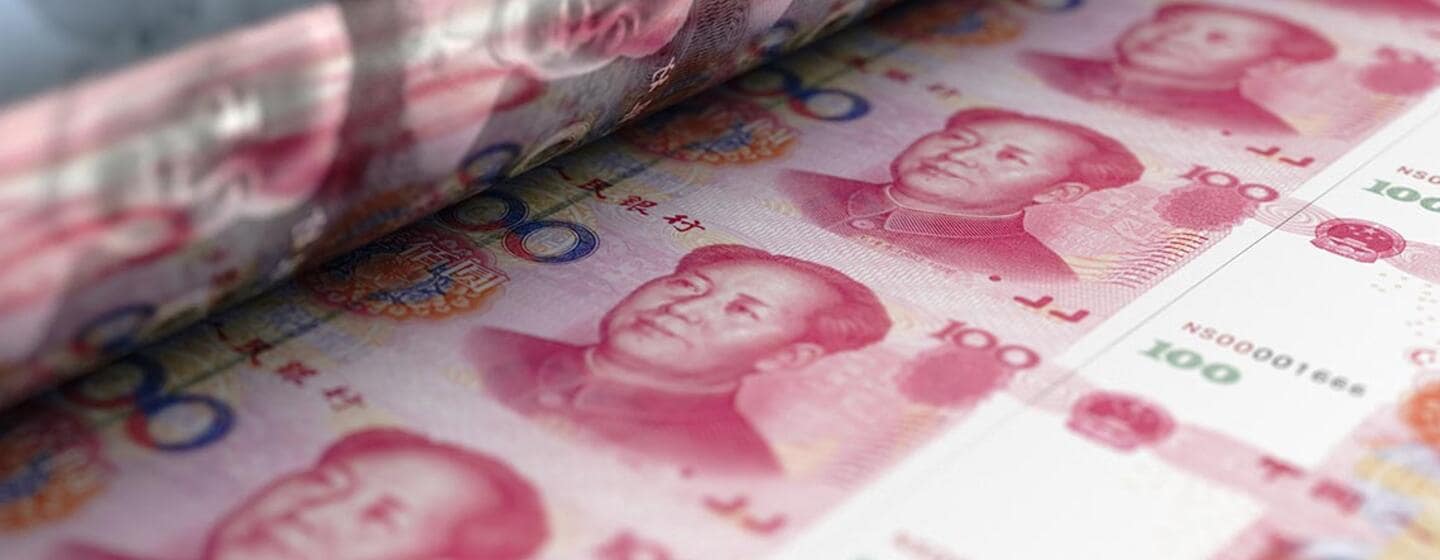London has capitalised on its status as the premier trading centre for global FX to become the de facto home of offshore renminbi, but CNH liquidity in London is bolstered by the ability of asset managers based in the City to satisfy the appetite of international investors for Chinese equity and debt.
This is one of a series of articles based on panel discussions at Sibos 2019, where industry figures came together to examine the issues impacting FX markets.
The trade war between the United States and China may have damaged New York, but it has helped London. “In London the word renminbi is an opportunity,” said Jon Vollemaere, CEO of BRIC currency trading house R5FX. “The word renminbi in New York is a threat and a concern, so it’s a natural focus for London.”
According to the 2019 Bank for International Settlements (BIS) triennial survey of the global FX markets, offshore renminbi (CNH) volumes in London are up 36% on 2016. Faye Ye, head of China and India at the City of London Corporation, said Swift data indicated London hosts 44% of CNH volumes worldwide. Eight Chinese banks have now opened full branches in London, against just two as recently as 2016.

Natural and other advantages of London as an FX trading hub
This dominant position reflects a confluence of factors. The most obvious is the link between CNH trading and London as an international FX trading centre, where more than half of all global FX trading takes place, according to the 2019 BIS survey – and one with a particular expertise in emerging currencies. In short, it is easier to exchange CNH for other currencies in London.
London also provides a supportive infrastructure of law, evolved over decades, that can ensure disputes can be managed, and global standards for best practices monitored and enforced where relevant.
The time-zone helps too, with London trading hours overlapping the Chinese domestic market in the morning and London-based firms continuing to provide renminbi liquidity even after mainland China and Hong Kong markets have shut.
“There is an incredibly liquid sweet spot between the hours of 6:00 or 7:00 am in London to 11:00 am, and really it is London’s role to continually extend that,” explained Chris Hall of China Construction Bank (CCB), the only clearing bank in London with direct access to the China Foreign Exchange Trading System (CFETS), the government-controlled FX service.
“We as the clearer can now trade same-day renminbi in London till 3:00 or 4:00 pm and we do whatever we can to offer liquidity to the market after Hong Kong and the rest of Asia has gone home,” added Hall. “I think that really is critical to London’s role – to show that we are not just piggybacking on the liquidity that is already there but generating additional flow through London’s afternoon.”
International asset managers use London to access Chinese capital markets
In generating that liquidity, the CNH market in London is supported by the appetite for renminbi of international asset managers based in London and investing in China. Renminbi bonds issued in London are matched by London-mediated flows into the domestic Chinese bond markets. With new opportunities to invest in China, the demand to manage currency exposure is also growing.
In addition, a new link between Euroclear CREST in London and the Depository Trust and Clearing Corporation (DTCC) in New York enables Chinese domestic investors to trade and settle 50 US stocks and 30 Chinese American Depository Receipts (ADRs) during London market hours.
Current trading and investment flows are unlikely to be disrupted by Brexit
The Belt and Road initiative, by which China invests in emerging markets, is expected to further reinforce London’s position, as City banks and professionals advise firms and governments in Asia, Africa and Europe on drawing up contracts, raising finance, hedging liabilities, insuring assets and selling and trading commodities.
These flows of business might even increase after Brexit, if the United Kingdom diverges from European regulatory constraints. “With the UK leaving the EU, this idea of having more of a Singapore-type approach for regulation could mean there ends up actually being even more foreign exchange trading in London as a result,” said Jon Vollemaere.
He expects renminbi business in London to continue to grow steadily through the gradual but deliberate easing of restrictions on the renminbi by the Chinese government, which has the ambition to unseat the euro as the second most important reserve currency, over the next few years.
“The internationalisation of the renminbi has every chance of being bigger than the euro was when the euro first came along,” added Jon Vollemaere. “It isn’t at the euro level yet, but I don’t think it is very far away.”


